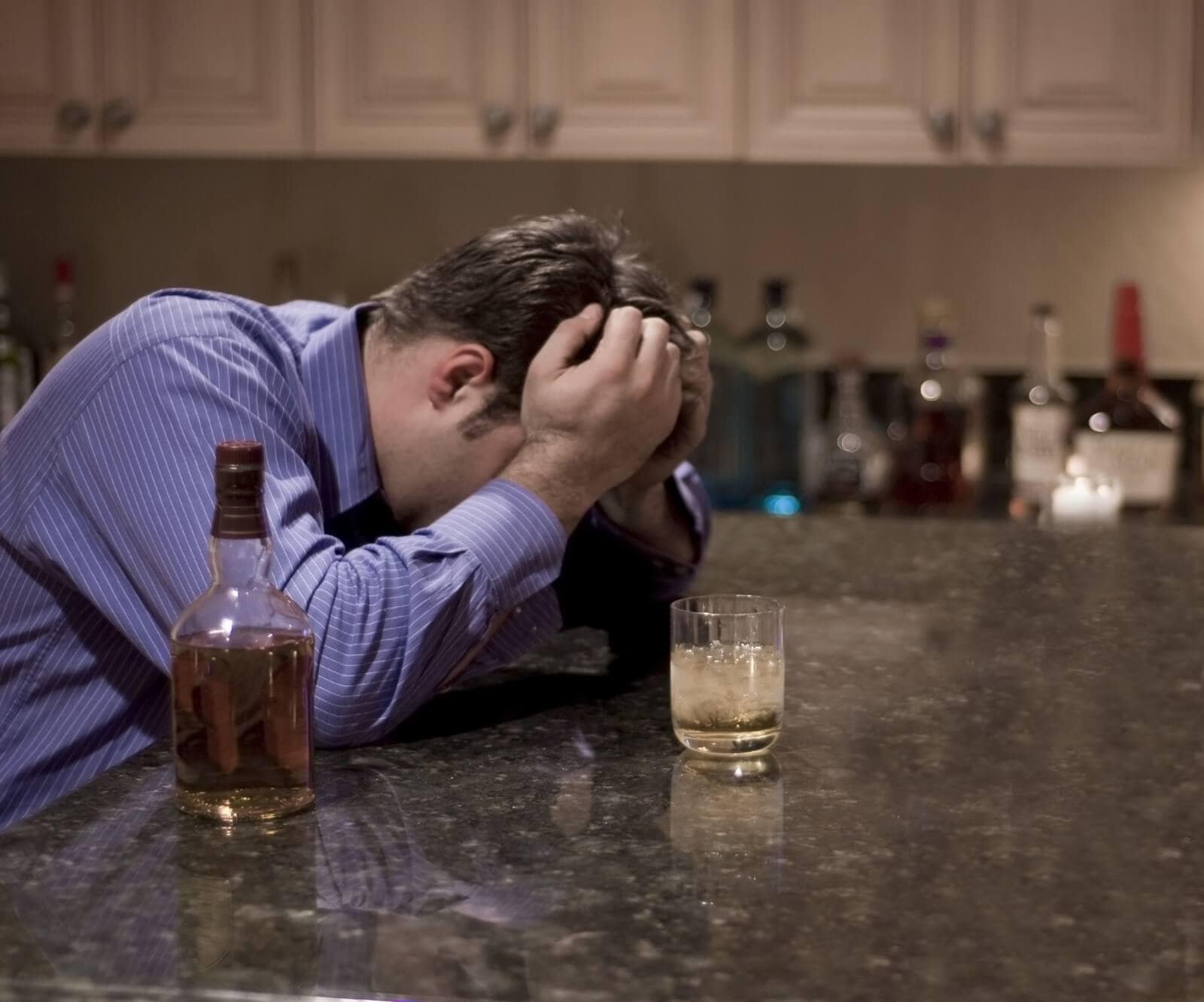Alcoholism in America
According to a 2018 survey, more than 50% of the U.S. population reported drinking alcohol in the last 30 days. Moreover, nearly 16% of the population reported binge drinking and 7% reported heavy drinking. While not every drinker is an alcoholic, the CDC reports that 95,000 people die every year from excessive alcohol consumption because they don’t know the signs of alcoholism.
Even more concerning is that, as a result of the COVID-19 pandemic, rates of alcohol abuse and alcoholism have increased across the country. In just one year, online alcohol sales increased 262% from 2019, and the World Health Organization officially warned that alcohol use during the pandemic is worrisome and can complicate existing health issues.
Still, alcohol abuse is extremely prevalent in society today. As of 2019, nearly 15 million people ages 12 and older had an alcohol use disorder (AUD). Of that group, 9 million were men and over 5 million were women. Alcohol isn’t only a problem among older teens and young adults, either. In 2019, an estimated 414,000 adolescents aged 12 to 17 met the criteria for an AUD.
Despite how widespread alcoholism is in America, only about 10% of people suffering get the help they need. By learning how to identify the signs of alcoholism, people can intervene and offer help to those who are struggling in silence.


Get The Treatment You Need and Deserve
Elevate Recovery Center stands at the forefront of addiction treatment, demonstrating a track record of effectively supporting long-term recovery. Our dedicated team of renowned clinical and medical professionals excels in addressing addiction, often in conjunction with mental health concerns, to provide personalized care for each individual in our program. Call us – we’re available 24/day, 7 days/week.
Side Effects of Alcohol Abuse
Alcohol abuse affects the body both inside and out in terrifying ways. It also causes damage to nearly all internal organs. Recognizing the warning signs of alcohol abuse and alcoholism can help prevent this damage from occurring and encourage people to get help sooner.
There are many short and long-term side effects associated with alcohol abuse. Oftentimes, these side effects will get worse the more and longer a person continues to drink.
When a person consumes alcohol and becomes intoxicated, their blood alcohol concentration (BAC) begins to rise. While the legal limit in most states is 0.08%, some people will begin feeling the effects of alcohol after just one drink, while others will have developed a tolerance that requires them to drink more to feel any effects.
- Short-term signs of alcohol intoxication include:
- Redness in the face or rosy cheeks
- Slurred speech
- Impaired, blurry, or double vision
- Lack of coordination
- Poor judgment
- Slowed reflexes
- Mood swings
- Elation
- Memory lapses
- Slowed breathing
- Slowed heart rate
People who are intoxicated may also seem extra outgoing, moody, or risk-taking. Their eyes may be glazed over and they may have a hard time concentrating or recalling recent memories.
While most all of these symptoms wear off as alcohol is processed in the body and leaves the system, people who suffer from alcoholism may appear drunk more often than not. And, these side effects can turn into worse long-term problems, such as:
- Liver disease
- Cardiovascular disease
- Respiratory infections
- Cancer
- Ulcers
- Nerve damage
- Alcoholism or addiction
Physical Signs of Alcoholism
In addition to appearing drunk, there are other physical signs of alcoholism to watch out for. These include:
TOLERANCE
Someone who becomes addicted to alcohol will need to drink more and more alcohol as time goes on to feel the effects they desire. This is called building tolerance and is a physical phenomenon that occurs as the body adjusts to chronic drinking. Tolerance will continue to build and problem drinkers may continue to consume more alcohol until they seek help.
ALCOHOL WITHDRAWAL
Chronic drinking can lead to alcohol dependence. Dependence occurs when the body is reliant on alcohol to function normally. In the absence of alcohol, withdrawals set in. Symptoms of alcohol withdrawal include irritability, restlessness, difficulty sleeping, depression, nausea, sweating, and tremors. Without professional detox and medical intervention, alcohol withdrawal can be life-threatening.
ALCOHOL SICKNESS AND HANGOVERS
People who abuse alcohol will drink often and may get sick from drinking. They may drink too much and throw up or wake up with a hangover that impairs their functioning throughout the day. This can take up a lot of time, energy, and resources. Frequent hangovers may also cause a person to call out of work, miss important appointments, or oversleep.
BLACKOUTS
Excessive drinking over a short period of time can lead to memory lapses often referred to as blackouts. Some blackouts will cause a person to forget all memories from a time period during which they were intoxicated. These are dangerous because a person could injure themselves or get themselves into a worrisome situation without even realizing it.
CRAVINGS
Someone who develops a physical dependence on alcohol is usually not far from being emotionally and mentally dependent, as well. Once psychological dependence or addiction sets in, cravings will occur. Someone who is an alcoholic will incessantly crave more alcohol, especially if they stop drinking. The best way to cope with cravings is by getting help from an alcohol rehab center.
ALCOHOL POISONING
Alcohol poisoning can occur if too much alcohol is consumed in too little time. Also considered an alcohol overdose, alcohol poisoning can be fatal without medical attention. Symptoms of alcohol poisoning include:
- Confusion or stupor
- Vomiting
- Clammy skin
- Seizures
- Slowed breathing
- Irregular breathing
- Blue-colored lips, face, tongue, or skin
- Hypothermia or low body temperature
- Unconsciousness
An alcoholic may be more prone to alcohol poisoning in the early phases of their drinking before developing a tolerance. However, alcohol poisoning can happen to anyone who abuses alcohol or binge drinks.
Behavioral Signs of Alcoholism
As if the physical signs of alcoholism aren’t eye-opening enough, the behavioral signs of a drinking problem are just as concerning. Chronic alcohol abuse can cause poor judgment and lowered inhibitions, making alcoholics at risk for making poor choices and getting into dangerous situations.
Some common consequences or behavioral side effects of alcoholism include:
- Getting into motor vehicle accidents
- Getting involved in other types of accidental injury
- Having relationship problems or getting into a relationship with an abusive individual
- Having poor performance at work or school
- Getting into legal troubles due to DUI, DWI, public intoxication, or other crime
- Showing signs of mood swings, depression, or suicidal thoughts
- Abusing other substances to potentiate the effects of alcohol
- Engaging in risky or unprotected sex
- Lying to friends and family about one’s drinking habits
- Drinking in secret or hiding alcohol and empty bottles
- Calling in sick to work often or the inability to maintain a job
- Having financial issues
Another tell-tale sign of alcoholism is denial. People who struggle with addiction often don’t realize the severity of their problem until the consequences have become great enough. And, when confronted about their drinking, an alcoholic may become defensive, angry, or irritable, denying having a problem with alcohol entirely.
The tricky nature of alcoholism and its common feature of denial is what makes stopping drinking so incredibly difficult. Fortunately, there are Massachusetts alcohol rehab programs here to help.
Finding Help for Alcohol Addiction
Alcohol abuse can rapidly cause one’s life to deteriorate. It can also wreak havoc on one’s mental and physical health. Even though alcohol is legal, it is still one of the most addictive substances out there. And, it is abused by people of all ages, each and every day. Due to the vast popularity of drinking, it’s important that alcohol rehab centers are armed with the tools and resources needed to help people get their lives back on track.
At Elevate Recovery, we believe that the key to success lies in individualized treatment and unparalleled dedication to patient care. Here, you’ll find all of the amenities, therapies, and support you need to develop a strong foundation in your recovery.
To learn more about the signs of alcoholism or to find a rehab program for yourself or a loved one, pick up the phone and call today.


